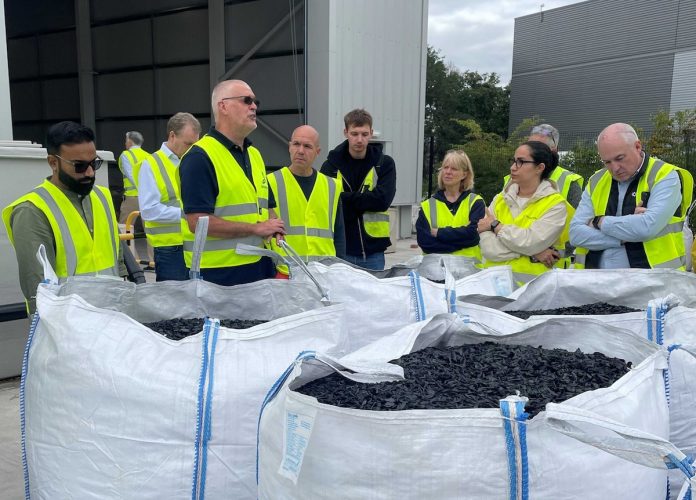Heat from a new biochar plant in Cheshire will be converted into electricity to supply social housing thanks to Ofgem ‘Redress’ funding of £600,000 to trial two specialised generators.
The generators will allow Severn Wye Biochar’s plant in Warrington to convert recovered heat from its biochar production process into electricity much more efficiency than conventional systems. The specialised generators operate using a heat exchange process known as Organic Rankine Cycle (ORC).
If successful, the trial could lead to electricity being supplied at below-market rates to nearby social homes which would be a first in the UK and EU.
Because of the way it’s produced – through a process called pyrolysis – the electricity would also be carbon negative. Pyrolysis involves baking material at high temperatures in low-oxygen conditions.
Project lead Simon Burgess explains, “We take wood chip and process it via pyrolysis to create a multi-purpose product called biochar. Because this locks away carbon that would otherwise be released into the atmosphere as the wood rots down, the electricity we generate from the process will be carbon negative.
“What’s exciting now is this opportunity to use heat generated by biochar production and turn it into carbon-negative electricity that could power some 300 homes. It could be a fantastic win-win for both climate change and tackling fuel poverty, paving the way for biochar plants to adopt this approach.”
Severn Wye Biochar director Sandy Ruthven added, “During the first two years of the project we proved that enough biochar can be produced to lock away 2,400 tonnes of carbon a year. At this level of production, there is commercial potential to sell biochar and carbon credits.
“This next phase of funding, allowing us to invest in this innovative ORC technology, could be another step change in our operations. Supplying affordable, carbon-negative electricity to homes would be a first in the UK as well as the EU where biochar manufacturing is more established.”
An independent evaluation will share the outcomes of the trial and assess whether the project is commercially viable. Installation and commissioning of the specialised generators is scheduled to be completed by spring 2026 with the three-month trial starting shortly after.




